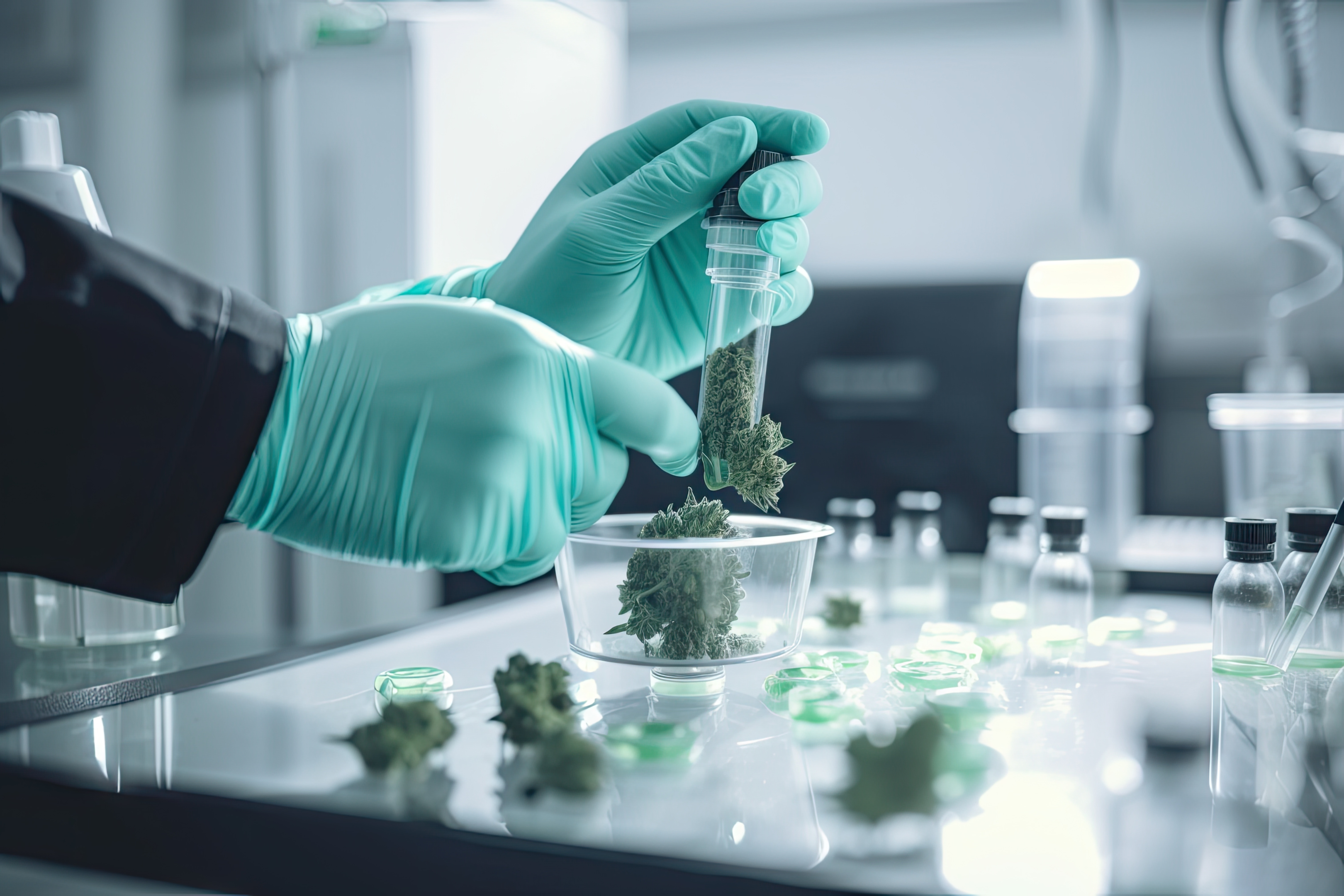News
Navigating the Boom of Hemp-Derived Cannabinoid Sales in the US
In the fast-paced hemp industry, the United States has witnessed a remarkable surge in the market for hemp-derived products, particularly those with hemp-derived cannabinoids other than the widely known Delta 9 THC. From a modest $200 million in 2020, hemp-derived cannabinoid sales have skyrocketed to an astonishing $2.8 billion in 2023, according to Brightfield Group, a cannabis data and analytics firm.
This exponential growth reflects a growing consumer interest and the expanding legal landscape that has allowed for such a boom. In this article, we’ll dive into the world of hemp-derived cannabinoids, exploring their popularity, legalities, and how we at 3CHI separate ourselves from our competition.
It’s great to see the industry have this kind of growth, but it doesn’t come without its caveats. We also want to stay on the mission of providing safe, effective, and consistent products.
Let’s get into it.
Understanding Hemp-Derived Cannabinoids
Before we get too far, we should outline the differences between marijuana, hemp, and cannabis.
Hemp derived products are products made from hemp, meaning that the Delta 9 THC content (the main psychoactive component found in cannabis) cannot be higher than 0.3% on a dry weight basis. That’s because Delta 9 THC is still on the controlled substances list, making it federally illegal. Outside of that, marijuana and hemp are essentially the same plant.
Now, when people say ‘cannabis,’ they often think and refer to marijuana. However, the term ‘cannabis’ is the umbrella term for that plant family. So, hemp is cannabis, and so is marijuana. Meaning, these hemp derived products come from the cannabis plant, even if some of them do not create psychoactive effects. That’s why it’s important to make sure we’re clear about the type of plants and products we’re referring to.
But other hemp derived cannabinoids include compounds like CBD, Delta 8 THC, CBC, CBG, and over 100 others! Most are only familiar with Delta 9 THC and CBD, but the cannabis plant has so much more to offer than just those two cannabinoids.
Leader of the Hemp Derived Products Boom
The popularity of hemp-derived cannabinoids owes a significant part to the meteoric rise of Delta 8 THC. In 2023, Delta 8 accounted for a staggering 44% of the hemp product market, generating an impressive $1.2 billion in sales. This cannabinoid has captivated consumers with its unique properties, offering a middle ground between CBD and Delta 9 THC, the primary psychoactive component in marijuana.
What is Delta 8 THC?
Delta 8 THC is a cannabinoid found in the cannabis plant, albeit in much smaller quantities compared to its more famous counterparts. It shares a chemical similarity with Delta 9 THC, but with a few critical differences that affect how it interacts with the body.
Delta 8 is known for providing a milder psychoactive effect than Delta 9 THC, making it an attractive option for those seeking less intense experiences.
One of the fascinating aspects of Delta 8 THC is its production process. While it occurs naturally in cannabis plants, the concentrations are too low for direct extraction to be viable. Instead, Delta 8 is typically derived from CBD extracted from hemp.
Through a chemical process, CBD is converted into Delta 8 THC, a method that has sparked debate regarding its classification as synthetic THC. However, it’s crucial to understand that Delta 8 is derived from naturally occurring CBD in the cannabis plant, maintaining its status as a hemp-derived cannabinoid.
Why Consumers Are Flocking to Delta 8 THC
Delta 8 THC has rapidly gained popularity for several reasons. Its milder psychoactive effects appeal to those who find Delta 9 THC too intense or who wish to avoid the anxiety and paranoia sometimes associated with higher doses of Delta 9.
Furthermore, Delta 8 may offer some of the therapeutic benefits associated with cannabis, such as pain relief and relaxation, and improved sleep.
Access to Delta 8 THC is also a significant factor in its popularity. Available in gas stations, online stores, and convenience stores, Delta 8 products are easily accessible to a broad audience. This ease of access has made it a go-to option for individuals living in states where Delta 9 THC is still illegal or heavily regulated.
The significant market share and sales generated by Delta 8 THC in 2023 underscore its growing appeal among consumers. Its unique position as a milder, more accessible alternative to Delta 9 THC, coupled with its therapeutic potential, makes Delta 8 a key player in the hemp-derived cannabinoid market.
As the cannabis industry continues to evolve, Delta 8 THC will undoubtedly remain a focal point of interest and innovation, further solidifying its place in the hearts and minds of cannabis consumers.
The Role of 3CHI in Ensuring Quality and Safety

As the market for hemp-derived cannabinoids grows, so does the need for reliable, safe products.
At 3CHI, we take this responsibility seriously, implementing strict in-house and third-party testing, including High-Performance Liquid Chromatography (HPLC) testing. This ensures that our products meet the highest standards for human consumption, free from contaminants and accurately labeled for THC content.
Beyond Cannabinoids: Comprehensive Safety Testing
At 3CHI, our commitment to safety and quality extends beyond merely measuring cannabinoid levels. Our rigorous HPLC testing protocols also screen for heavy metals and dangerous solvents, which are critical for ensuring the overall purity and safety of our products.
These contaminants, if present, can pose significant health risks, leading to adverse events in consumers. By ensuring our products are free from these harmful substances, we provide our customers with the peace of mind that they are using some of the safest cannabis derived products on the market.
Educating Consumers on Safe Consumption
3CHI believes in not only providing safe, high-quality products but also in educating consumers about the importance of product safety. By understanding what to look for on a product label, consumers can make informed decisions about the hemp derived products they choose to purchase.
This education is crucial, especially as the market continues to be flooded with an array of cannabis derived products, each marketed with varying degrees of transparency and quality assurance.
Law Changes Help Drive Interest
The legality of hemp-derived products significantly contributes to their popularity. The Agriculture Improvement Act (also known as the Farm Bill) of 2018 was a game-changer, legalizing hemp with trace amounts of THC (less than 0.3%).
This legislation opened the doors for the production and sale of hemp-derived cannabinoids, although the regulatory environment remains complex, especially concerning hemp-derived THC products.
Expanding Production and Accessibility
The Farm Bill’s passage marked a pivotal moment for the cannabis industry, allowing for increased production, sale, purchase, and consumption of hemp-derived products.
This new law effectively met the growing consumer demand by legalizing hemp at a federal level, thereby driving supply to match the peaking interest in CBD products, hemp-derived THC, and other cannabinoids. The industry has seen a significant uptick in the availability of these products, making them more accessible to consumers nationwide.
The Role of State Legislation
In addition to federal changes, state-specific legislation has also played a crucial role in shaping the cannabis and hemp markets.
States have taken varied approaches to the regulation of marijuana and hemp-derived products, with some states fully legalizing marijuana for recreational use and others focusing on creating a robust market for hemp-derived cannabinoids.
This patchwork of laws has further stimulated the market, as manufacturers and consumers navigate the legal intricacies of state and federal regulations.
Driving Supply to Meet Demand
The change in laws has not only legalized the production and sale of hemp-derived products but also legitimized them in the eyes of the public and investors. As a result, there has been a significant increase in investment in hemp cultivation, extraction facilities, and product development.
This influx of capital and interest has driven the supply to meet the ever-increasing demand for hemp-derived cannabinoids, contributing to the industry’s explosive growth.
The Future of Hemp Derived Cannabinoids in the U.S.

As we reflect on the remarkable journey of hemp-derived THC and cannabis products, it’s clear that the landscape has undergone a significant transformation. The surge in popularity of hemp-derived cannabinoids, as reported by the Brightfield Group, underscores a broader acceptance and curiosity about the potential of the cannabis plant.
With revenue figures reaching new heights and products being sold in different forms across a myriad of platforms, the future of this vibrant industry looks promising.
The evolution of hemp-derived THC and CBD products has not only reshaped consumer preferences but also paved the way for innovative cannabis product offerings. From edibles and topicals to oils and tinctures, the diversity in both CBD and THC products caters to a wide range of needs and preferences, reflecting the dynamic nature of this market.
Looking ahead, the future of hemp-derived cannabinoids in the U.S. is bright, fueled by ongoing legal advancements, technological innovations, and a growing body of research that continues to uncover the myriad benefits of cannabis products.
As the industry matures, we can expect to see further growth in revenue, an expansion of product offerings, and a deeper integration of hemp-derived products into the mainstream market.
The journey of hemp-derived cannabinoids is far from over. With each passing day, new discoveries and developments promise to shape the future of the industry in exciting ways.
As consumers continue to embrace cannabis products in their many different forms, the potential for growth and innovation remains boundless. The road ahead is filled with opportunities, challenges, and the promise of a greener, more prosperous future for hemp-derived cannabinoids in the United States.
To stay updated on all things 3CHI and cannabis, sign up for our newsletter here!
When you do, you get 5% off your first order and a free pack of gummies!

